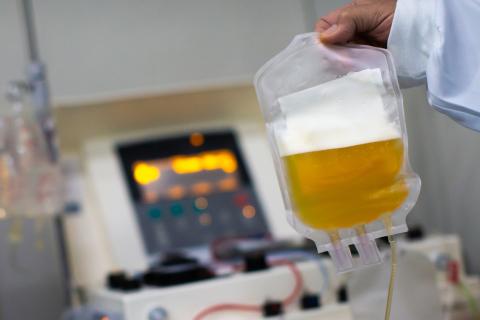The ban on plasma being used to manufacture human albumin treatments has been lifted, the government has announced.
Albumin treatments are given to thousands of patients ever year to replace blood loss from trauma like burns and severe injuries, or conditions like liver disease and sepsis.
Previously, the use of UK-donated plasma to make medicinal products was outlawed due to concerns around the spread of Creutzfeldt-Jakob Disease – a condition which has symptoms similar, but often much more accelerated, to Alzheimer’s and is caused by elevated levels of a protein known as a prion.
The ban meant the UK relied on solely on imported plasma-derived products – typically from the US.
But now, following an evidence review, sector leaders at the independent Commission on Human Medicines have recommended putting the ban to an end.
“The use of locally sourced plasma treatments will help save more lives and the NHS will continue to work with partners to secure a supply chain of medicines that patients rely on,” said NHS England’s chief pharmaceutical officer, David Webb.

The news follows the lifting of a similar ban for using UK plasma to manufacture immunoglobulins in 2020.
The government emphasises the need for organisations to continue to abide by the safety standards set out for immunoglobulin manufacturing. This includes:
- Leucodepletion – i.e. filtering white blood cells out of donated blood to reduce the likelihood of adverse reactions
- High-risk donor deferrals
- Tracing donations between donors and patients
Chief safety officer at the Medicines and Healthcare products Regulatory Agency, Dr Alison Cave, added: “We are committed to ensuring that all patients have access to safe, effective medical products and I am delighted that our work in this area continues to bear fruit.
“I am so pleased that we have been able to support the lifting of this ban by examining the safety evidence and that there is now the potential to produce life-saving treatments from plasma that has been donated in the UK.”
Image credit: iStock



















